Small Business Bookkeeping
- Home
- Small Business Bookkeeping
What is bookkeeping?
Small business bookkeeping is the focus at KB Accounting Services Inc. Because the Canada Revenue Agency (CRA) is now focused on supporting documentation and line audits, it's more important than ever to have effective bookkeeping. We believe in providing our clients with strong audit trails to withstand any scrutiny the CRA might give. An audit trail is protection against the hundreds or even thousands of dollars in penalties and fines that the CRA could leverage against your business over a single typo or incorrect record. Don't get caught with easy-to-avoid mistakes. Let a professional handle your bookkeeping.
Accounting, which includes bookkeeping, has been called the language of business. It is the process of measuring, processing and communicating financial information about your business. Accounting provides you with information on your resources, the financing of those resources and the results your business achieves through their use. Business accounting services interpret the numbers a bookkeeper prepares to determine the financial health of a company. Consider us your financial doctor! Just as you go to the doctor to ensure your body is healthy and running smoothly, you should talk to your accountant regularly to make sure your finances are too.
Bookkeepers prepare a record of the financial affairs of the company. Bookkeeping is the process of keeping daily records of all of a company’s financial transactions. Bookkeepers keep different ledgers, such as a general ledger, a customer ledger, supplier’s ledger, and daybooks, which record financial transactions as they occur. Posting is the process of recording transactions. Source documents, or proofs that the transactions took place, support these records. Examples of source documents are an employee timecard or a supplier invoice.
In addition to recording transactions, a bookkeeper must balance the books, an expression you may be familiar with. This means making sure that all the ledgers, and the accounts they represent, match. If they don’t, it could mean that something was not recorded properly, but it could also indicate issues with the finances themselves. Someone may not have cashed a cheque, for instance. A bookkeeper often works under the direction of an accountant, and it’s important to have a bookkeeper who pays attention to detail—software won’t know if something is missing. A bookkeeper should have a strong understanding of when to expense items, which taxes are applicable, which items are eligible, as well as how expenses should be classified. The complexity of the bookkeeping process depends on the size of your business and the number of transactions conducted daily, weekly and monthly.
Here at KB Accounting Services Inc., we know all Regina and Saskatchewan laws and regulations to make sure your small business bookkeeping is sound.
What records are part of bookkeeping?
- Sales
- Purchases
- Receipts
- Payments
- Cash/Bank transactions
What does small business bookkeeping consist of?
Create reports
Bookkeepers can create reports and do analysis based on the records they keep. We know how confusing this can be and work hard to break things down for our clients. There are four main financial statements.
- An income statement, also known as a P&L or profit and loss statement, reports the revenue and expenses for a particular period.
- A cash flow statement reports how balance sheet changes affect cash equivalents for a period. This shows funds in and out of your business and how it affects your ability to pay your bills, for instance.
- A balance sheet is the only one of the four statements that shows results as of a specific date, not time period. It records assets, liabilities, and ownership equity.
- A statement of changes in equity shows changes from one time period to the next, including the owners’ equity, dividends paid, surplus profit, etc.
Accountants issue financial statements three ways. Audited financial statements must be prepared by an accountant, who includes their opinion on the quality of the document. This means they verify the statement fairly represents the financial picture of the company, not the sort of opinion you might have while reviewing it. These are the most time consuming and require certain criteria be met.
Accountant-reviewed financial statements do not require the accountant to give an opinion on the quality or accuracy of a statement. They assure the document presents a plausible picture of the company’s finances, and require fewer processes and tests.
Lastly, when a business receives a financial statement but it has not been audited or reviewed, it does not have the same level of accountability or reliability. When this is the case, the accountant issues a Notice to Reader with the financial statements letting them know that. While this is the least secure method of receiving financial statements, it is also the least time-consuming. Accountants must comply with all laws and regulations when preparing financial statements accompanied by a notice to reader.
KB Accounting Services Inc. provides all three methods of delivery for your small business bookkeeping financial statements.
File remittances
Companies must set aside money known as a remittance to pay to the Canada Revenue Agency. The bookkeeper is responsible for filing government remittances once an accountant reviews them. These remittances include PST, GST, and source deductions. Source deductions can include Canada Pension Plan (CPP) contributions and employment insurance (EI) premiums. These deductions are withheld from employee paychecks and remitted to the CRA.
A bookkeeper may also generate invoices or complete payroll.
What does KB Accounting offer?
- Accounts Receivable—Invoicing, monthly Customer Statements and reconciliation
- Accounts Payable—Data entry, payments (check run) and reconciliation
- GST/PST and Payroll Remittances
- Payroll, T4 and T4 Summaries, Worker’s Compensation Employer’s Statement
- Bank Reconciliations and Inventory Adjustments
- Inventory and Manufacturing Accounting, WIP accounts
- Departmental Bookkeeping
KB Accounting Services Inc. is a full-service accounting agency based in Regina, Saskatchewan. In addition to small business bookkeeping services, we educate our clients about what we’re doing so they can make better financial decisions for their company. Because we also offer accounting services, we are able to contextualize and customize our bookkeeping services for your business. We provide a strong audit trail so that our records stand up to any questions the CRA might have for you and comply with the latest updates to financial best practices.
Software
- SAGE
- SAGE 1 (Online version of SAGE)
- Quickbooks
- Quickbook online
Our skilled team is also able to work with other accounting programs you may have.
Standards
KB Accounting Services Inc. follows GAAP (pronounced “gap”), or Generally Accepted Accounting Principles, a collection of standards and best practices used in Canadian accounting. Historically established to create uniformity among industry terms, the Principles grew into a framework of guidelines, procedures, and rules. Since 2011, the Canadian GAAP has been a part of the International Financial Reporting Standards (IFRS) required to be used by publicly accountable enterprises. Private ones have the option of using Accounting Standard for Private Enterprises (ASPE). We constantly stay updated on changes to the standards that could affect your business’s performance in case of an audit.
Our professional financial services give you confidence that your finances are being handled with the utmost care, discretion, and accountability. We communicate regularly so you know what’s happening with your finances, not just for an annual review. We’re easy to work with, offering all necessary forms and paperwork online, so you can focus on growing your business. Small business owners have to wear many hats, but bookkeeper shouldn't have to be one of them. Let us do your small business bookkeeping for you.
Contact us for bookkeeping monthly rates to create a plan that’s right for you.
Learn More
Find out what the CRA considers an allowable business expense so you know what to keep track of.
Contact Us
Call Us
Contact Us
- Address: KB Accounting Services, Inc.Regina , Saskatchewan
- Phone: (306) 530-9548


